Disclosure: This article contains affiliate links. We may earn a commission from purchases at no extra cost to you, which helps our travel content.
The radio in my patrol car back in Calgary used to crackle with calls throughout the night, but nothing compares to the symphony of sounds that awakens you in a traditional Zambian village—roosters announcing dawn, women singing as they pound maize, and children's laughter echoing between mud-brick homes. After years of exploring Olympic venues and urban landscapes, I found myself craving something more profound: genuine human connection away from tourist circuits. South Luangwa's traditional villages offered exactly that—a chance to temporarily trade my structured life as a police officer for the rhythmic simplicity of rural Zambian life. This wasn't just another stamp in my passport but a deliberate step into a world where time moves differently, where astronomical knowledge is passed down through generations rather than textbooks, and where cultural immersion means becoming family, if only for a week.
Finding Your Village Family
The journey into authentic village life begins with finding the right community connection. Unlike typical tourist experiences, genuine cultural immersion requires intentional partnerships with communities that welcome visitors while maintaining their cultural integrity.
I worked with the Luangwa Community & Conservation Project, which partners with several villages in the South Luangwa region. What distinguishes this program is their commitment to mutual benefit—visitors gain authentic cultural experiences while communities receive direct support. After an orientation in Mfuwe, I was introduced to the Kunda family in Mkhanya village, who would host me for the next week.
My host mother, Chisomo, greeted me with the traditional Kunda welcome—a gentle clap followed by a handshake. Her home, a cluster of circular mud-brick structures with thatched roofs, would be my base for exploring village life. The accommodations were basic but comfortable; I slept on a reed mat atop a raised clay platform in my own small hut, which the family had prepared specially for visitors.
Before arriving, I purchased a solar lantern which proved invaluable during evening conversations and nighttime trips to the outdoor bathroom facilities. It also became a gift I left with my host family when departing—a practical token of appreciation that aligned with local needs.
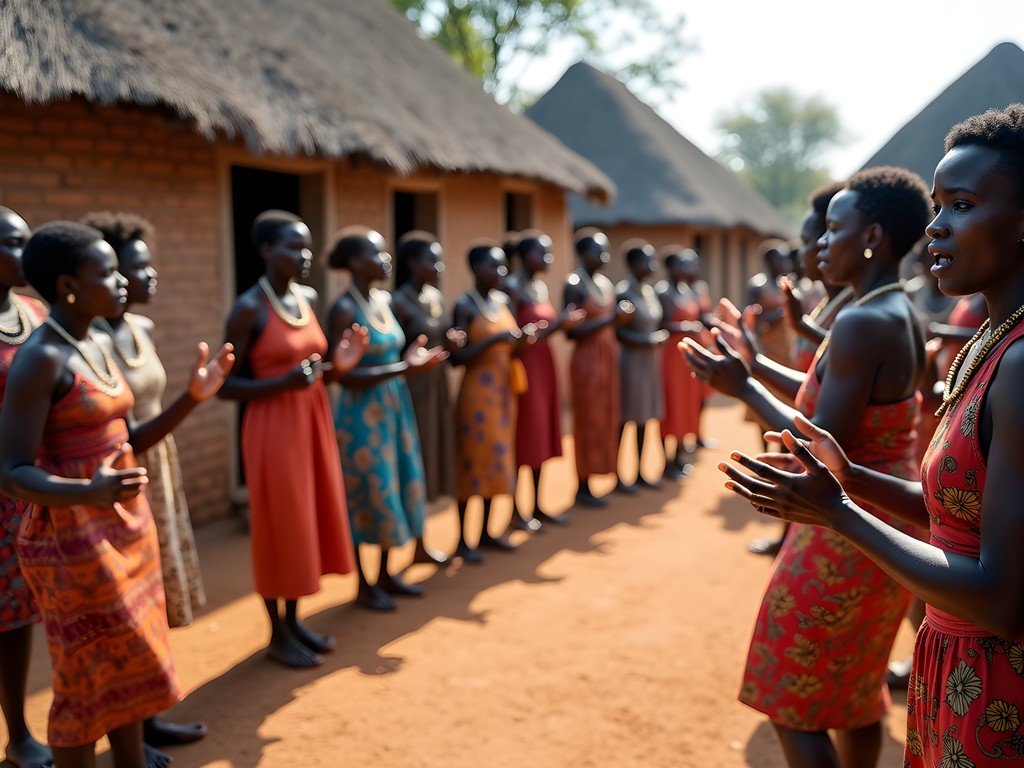
💡 Pro Tips
- Research community-based tourism initiatives rather than commercial 'village tours'
- Learn basic Nyanja phrases before arrival—even simple greetings earn tremendous goodwill
- Bring photos of your home and family to share—it creates meaningful conversation starters
Daily Rhythms: Embracing Village Life
Village life in South Luangwa follows the sun rather than the clock. My first morning began at 5:30 AM when Chisomo gently tapped on my door. By police officer standards, this wasn't early, but the quality of morning light here—soft gold filtering through acacia trees—made this wake-up call extraordinary.
Daily routines quickly became my anchor for cultural understanding. Each morning, I joined the women for water collection, balancing a small jerry can on my head (to much amusement from the local children who found my wobbly attempts hilarious). The 30-minute walk to the community well became a masterclass in local botany as Chisomo pointed out medicinal plants along the path.
Afternoons were devoted to household tasks—grinding maize into meal using traditional stone tools, preparing nshima (the staple corn porridge), and learning basket weaving techniques from village elders. What struck me most was how these seemingly mundane activities served as vehicles for knowledge transfer, with stories and cultural lessons woven into each task.
The physical demands of village life shouldn't be underestimated. I was grateful for my quick-dry hiking pants which proved perfect for the variable conditions—cool mornings, hot afternoons, and occasional kneeling on earthen floors. Their durability and modest design also aligned with local sensibilities about appropriate dress.
By day three, I'd settled into the rhythm enough to notice subtle cultural nuances—the hierarchical seating arrangements during meals, the elaborate hand-washing ritual before eating, and the particular way elders were addressed with honorifics.
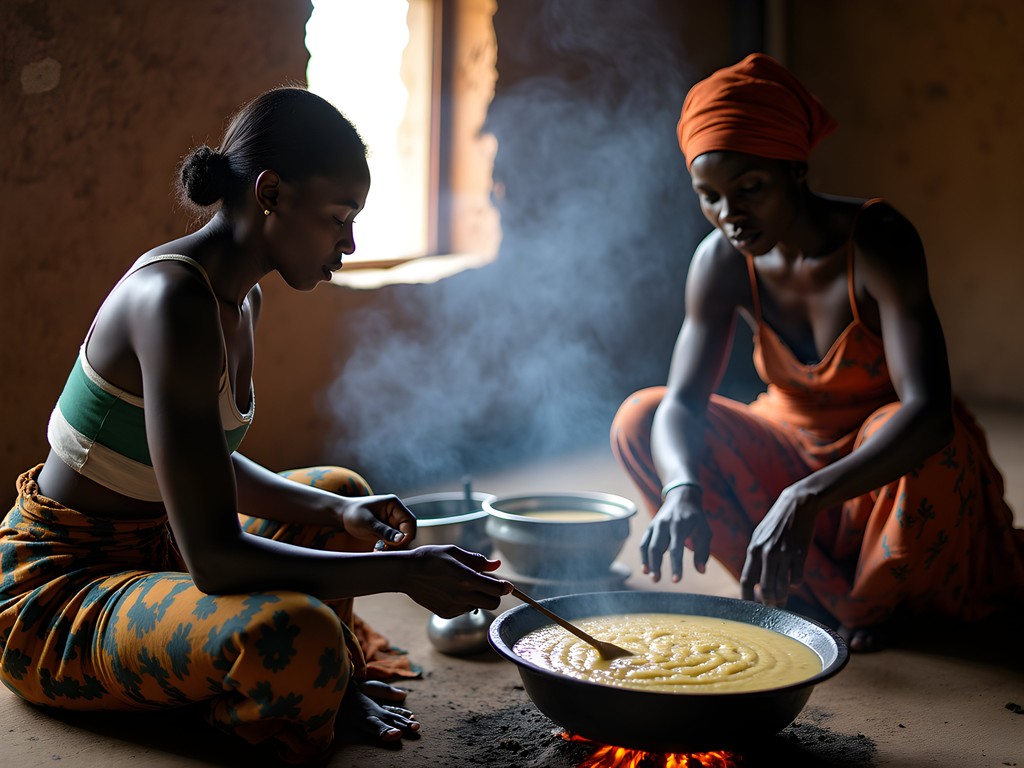
💡 Pro Tips
- Wake early to participate in morning activities—this is when most social bonding happens
- Ask to help with daily chores rather than just observing them
- Respect gender roles initially, but don't be afraid to ask questions about why certain tasks are divided as they are
Cultural Exchange Under Zambian Stars
As both a police officer and amateur astronomer, I've spent countless nights under starlit skies. But nothing prepared me for the celestial canvas of South Luangwa—a sky so densely packed with stars that familiar constellations seemed to disappear among countless new pinpoints of light.
What made these stargazing sessions extraordinary wasn't just the visibility, but the cultural exchange they facilitated. While I shared my knowledge of constellations from a Western perspective, village elders recounted Kunda folklore about the night sky—stories where celestial bodies represented ancestors, animals, and moral lessons.
Chisomo's father, a respected elder named Dalitso, showed me how traditional farming calendars were tied to specific star positions. The appearance of certain stars signaled when to plant particular crops or prepare for seasonal changes. This astronomical knowledge, passed down through generations, demonstrated sophisticated observation systems that predated Western scientific methods.
For these nighttime gatherings, my headlamp with red light mode proved invaluable. The red setting allowed me to consult my star charts without disrupting our night vision, while respecting the natural darkness the elders preferred for their storytelling.
One unforgettable evening, we participated in a community gathering where traditional music and dance continued well into the night. The rhythmic drumming seemed to echo the pulsing of the stars above, creating a multisensory experience that connected earth to sky in ways I'd never experienced in urban settings. I found myself thinking about how differently we experience time and space when removed from artificial light and digital distractions.
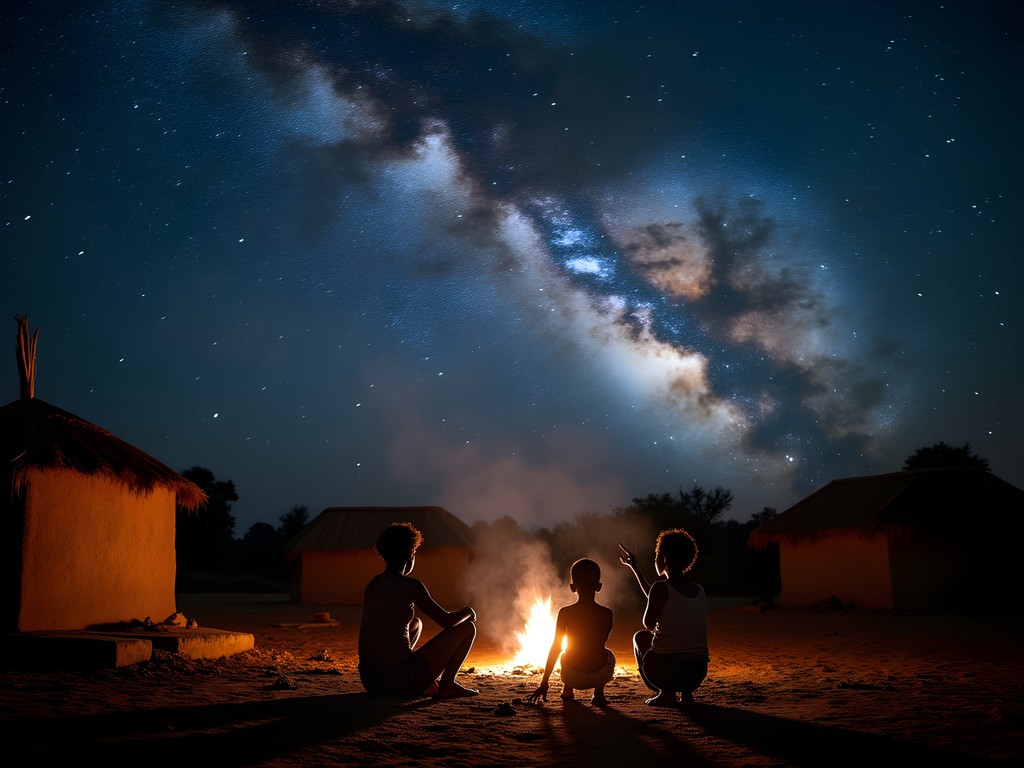
💡 Pro Tips
- Bring a star chart specific to the Southern Hemisphere to identify unfamiliar constellations
- Ask about local names for stars and constellations—they often reveal cultural priorities
- Participate in evening gatherings—this is when most traditional stories are shared
Navigating Cultural Differences with Respect
Cultural immersion isn't without its challenges. As someone accustomed to direct communication from my police work, I initially struggled with the more circular conversation patterns in the village, where direct questions can sometimes be considered impolite.
Gender dynamics presented another learning curve. As a female traveler accustomed to independence, I needed to temporarily adapt to different gender expectations. Rather than resisting these differences, I approached them with curiosity—asking questions about the reasoning behind customs and sharing perspectives from my own culture when appropriate.
Language barriers created both frustration and unexpected humor. My attempt to learn basic Nyanja phrases resulted in several unintentional jokes that fortunately endeared me to my host family rather than offending them. We developed a hybrid communication system combining simple English, Nyanja words, and elaborate hand gestures that somehow worked.
Privacy expectations differ dramatically in village settings. The concept of personal space is more fluid, with children freely entering my hut and family members often sitting in comfortable silence watching me write in my journal. Rather than finding this intrusive, I came to appreciate the sense of constant connection—so different from the isolation that can characterize Western living.
Gift-giving required careful navigation. Rather than arriving with predetermined presents, I observed community needs during my first days. By mid-week, I understood that school supplies for children and practical items like water purification tablets were more valuable than trinkets or candy. When departing, I arranged to purchase additional supplies in Mfuwe to be delivered to the village school.
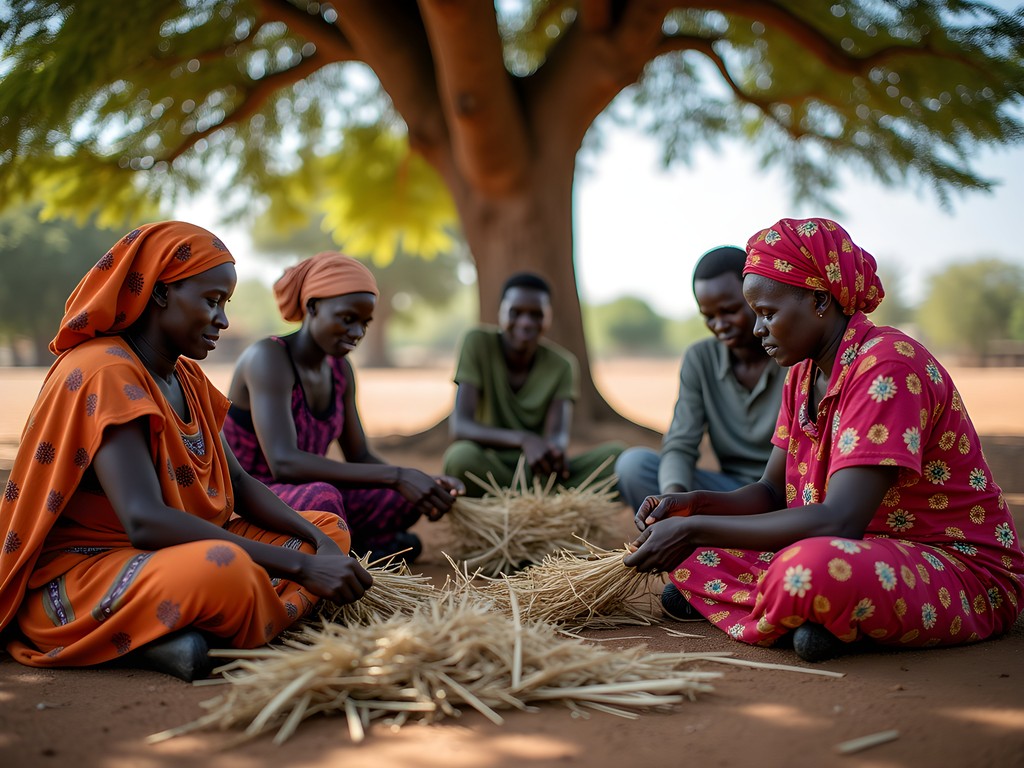
💡 Pro Tips
- Ask permission before taking photographs, especially of ceremonies or children
- Learn the proper greeting rituals—they vary by region and are crucial for showing respect
- When confused by a custom, ask younger community members for explanation in private to avoid embarrassment
Beyond Tourism: Creating Meaningful Connections
The difference between being a tourist and a temporary community member lies in the depth of relationships formed. By day four, I'd graduated from 'the visitor' to 'Ana from Canada' and finally to 'Sister Ana'—a title that reflected growing acceptance.
Meaningful connections developed through shared vulnerability. When I helped treat a child's minor wound using my first aid kit (a skill from my police training), barriers dissolved. Similarly, when I struggled to carry water or cook properly, my willingness to fail publicly and laugh at myself created bonds that tourist performances never could.
The village school became my favorite place for authentic exchange. With the headteacher's permission, I spent an afternoon sharing stories about Canadian winters and Olympic events I'd witnessed while working security at the Vancouver Games. The children's questions revealed how they perceived the outside world and gave me insight into their aspirations and challenges.
Sporadic cell service meant I could occasionally share photos with my hosts. Using my smartphone, I showed images of Calgary's skyline, police vehicles (a huge hit with the children), and snow—a concept entirely theoretical to most villagers. These digital windows into my world sparked conversations about globalization, opportunity, and the double-edged nature of technological progress.
By week's end, I'd been invited to a naming ceremony for a newborn—an honor typically reserved for community members. As we sat in a circle passing a baby girl from person to person while offering blessings, I understood that true cultural immersion isn't about collecting experiences but about being present enough to be included in life's significant moments.
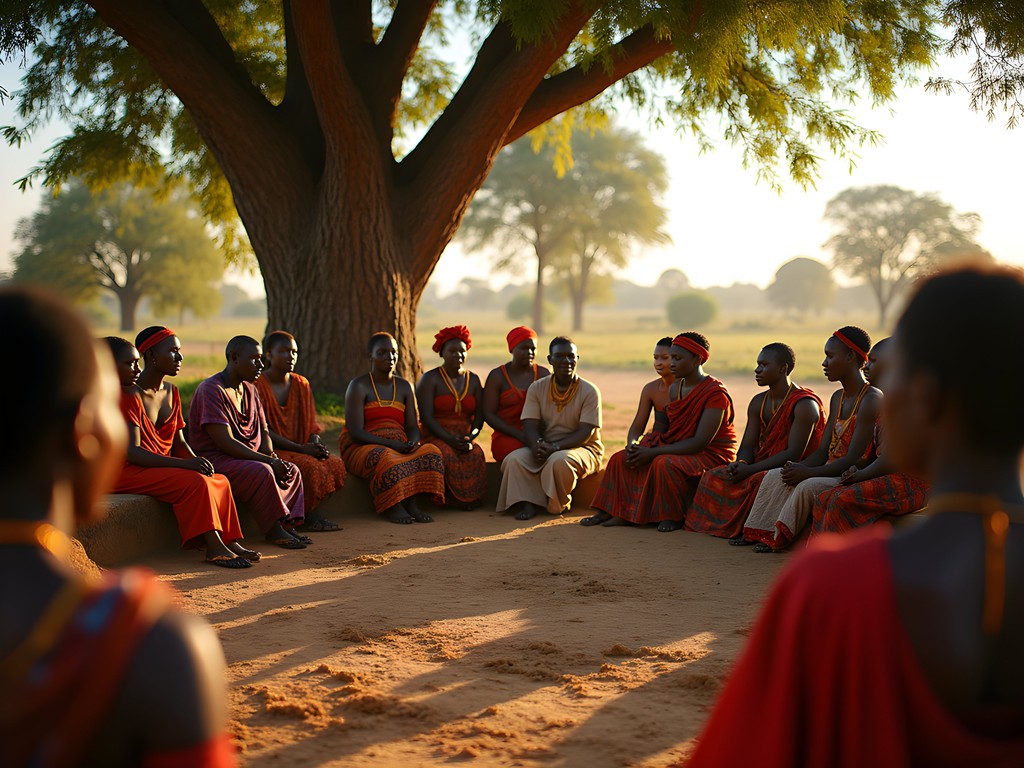
💡 Pro Tips
- Offer to share skills from your background—teaching basic first aid can be particularly valuable
- Visit the local school if appropriate—children often bridge cultural gaps most easily
- Learn family relationships and use appropriate kinship terms when addressing community members
Final Thoughts
As I boarded the small bus back to Mfuwe, the entire Kunda family and several neighbors gathered to say goodbye. Chisomo pressed a small handwoven bracelet into my palm—a physical reminder of connections that transcend language and culture. My week in South Luangwa's villages fundamentally shifted how I approach travel. True cultural immersion isn't about perfect authenticity or ticking boxes on an experience list—it's about creating space for genuine human exchange. Whether you're watching the Milky Way through different cultural lenses or stumbling through your first attempt at pounding maize, these shared moments build bridges that standard tourism simply cannot. If you're willing to temporarily surrender comfort, certainty, and some Western conveniences, Zambia's villages offer something increasingly rare in our hyperconnected world: the chance to simply be present with people whose life experiences differ dramatically from your own.
✨ Key Takeaways
- Village stays require surrendering control and embracing discomfort for deeper cultural understanding
- Astronomical knowledge and star stories provide fascinating insight into traditional Zambian worldviews
- The most meaningful connections come through shared activities rather than observation
📋 Practical Information
Best Time to Visit
May-October (dry season)
Budget Estimate
$800-1200 for one week including program fees, basic accommodations, meals, and transportation
Recommended Duration
5-7 days minimum
Difficulty Level
Challenging

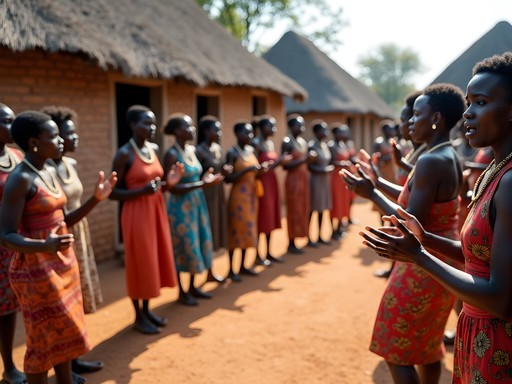
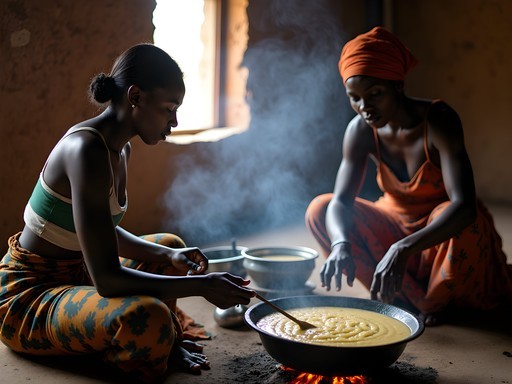
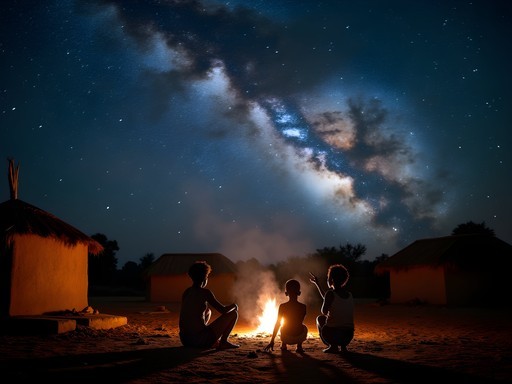
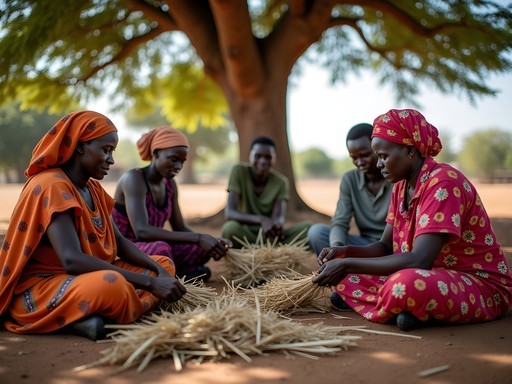
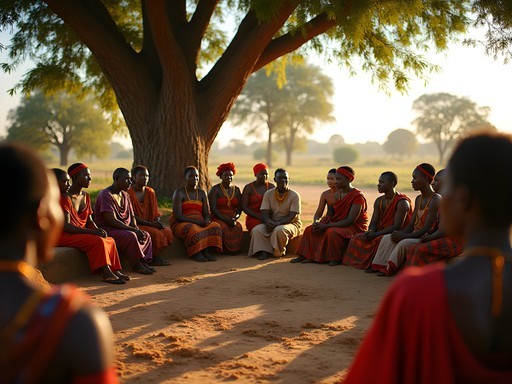


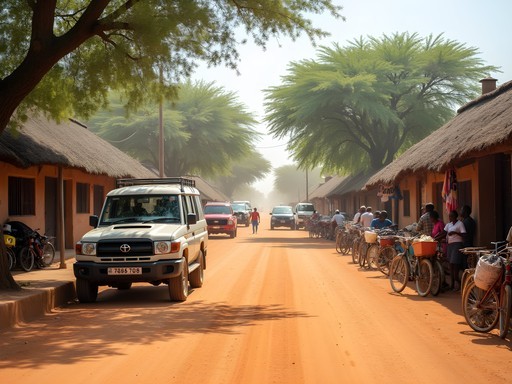
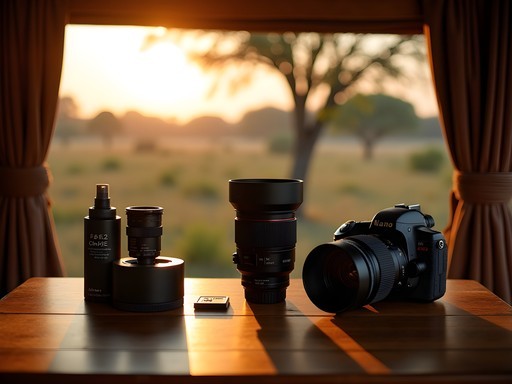
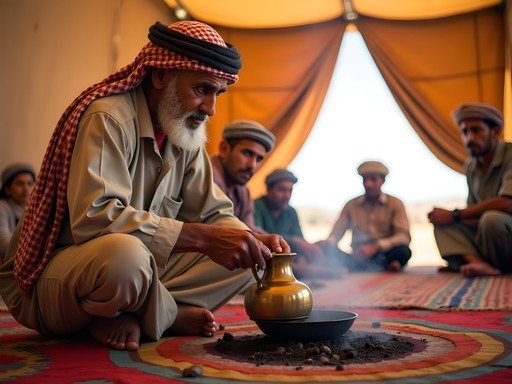
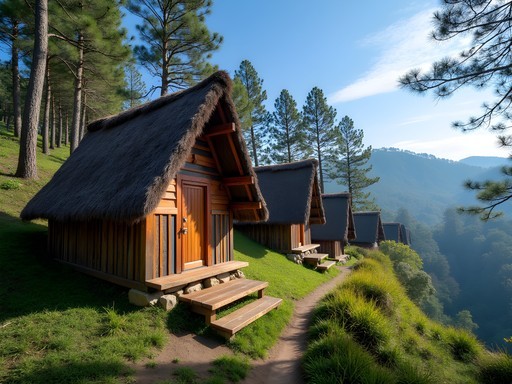
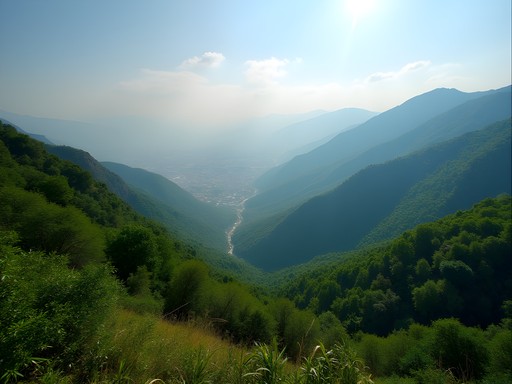
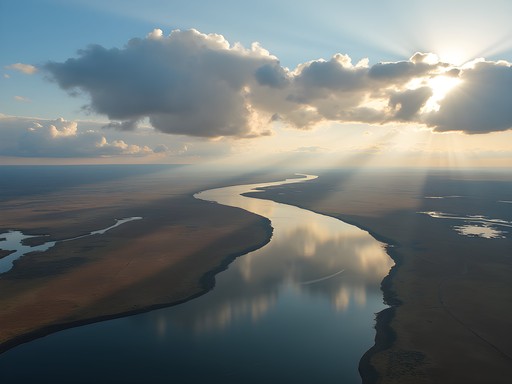
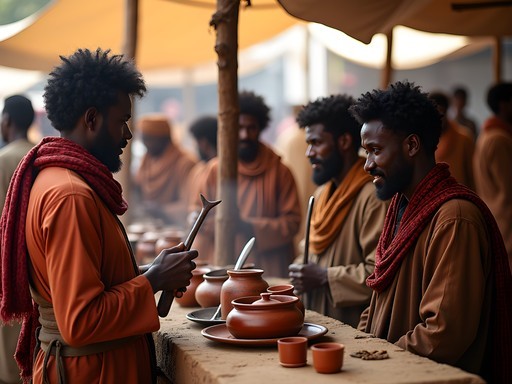

Comments
culturecrusader
I did something similar in 2024 and it changed my perspective on travel completely. The family I stayed with had so little by Western standards but showed such generosity. My favorite memory was helping to cook nshima over an open fire - I was terrible at it and everyone was laughing (with me, not at me...mostly). One thing I wish I'd known beforehand was how to better handle the gift-giving aspect. I brought too many "things" when what they really appreciated were practical items. If anyone's planning this type of stay, consider bringing seeds for their garden, good quality tools, or school supplies instead of trinkets.
wandering_soul55
Those sunset photos are absolutely stunning! What camera did you use?
Ana Howard
Thank you! Just my trusty old Nikon D750. The light in Zambia does all the work!
safari_dreamer
Heading to Zambia in October! Did you need to arrange the village stay in advance or can you do it once you're there?
Timothy Jenkins
Not Ana, but I'd definitely recommend arranging it in advance. October is still fairly busy season in South Luangwa, and the more authentic village stays require some coordination. The lodges need time to contact families and make arrangements. If you wait until you arrive, you might end up with something more staged for tourists.
safari_dreamer
Thanks for the tip! Any specific lodges you'd recommend that do this well?
Timothy Jenkins
I had good experiences with Flatdogs Camp and Track & Trail River Camp - both have excellent community connections and guides who can facilitate authentic experiences rather than tourist shows.
Timothy Jenkins
Ana, this post resonates deeply with me. I did something similar in a village near Mfuwe last year, though only for three days. The rhythm of village life is something you can't understand until you've lived it. That pre-dawn chorus of roosters, children, and the sounds of women preparing the day's first meal! One thing I'd add for others considering this experience - bring small, thoughtful gifts from your home country. Photos of your family/hometown, simple school supplies for children, or cooking ingredients unique to your culture make for wonderful cultural exchange moments. The Kunda people I stayed with were fascinated by photos of snow! I found that learning just 10-15 phrases in the local language opened so many doors. Did you find the same? My phrasebook had a decent section on Nyanja basics that proved invaluable.
Ana Howard
Absolutely, Timothy! Even my terrible pronunciation of basic greetings brought huge smiles. The gift suggestion is spot on - I brought maple candies from Canada and they were a massive hit. The children couldn't believe I came from a place where it snows half the year!
escapephotographer
This is exactly the kind of travel experience I've been looking for! How did you find the family to stay with?
Ana Howard
Thanks! I actually worked with a local guide from Mfuwe who has connections with several villages. Most lodges in South Luangwa can arrange these homestays if you ask specifically for a non-touristy experience.
escapephotographer
That's super helpful! Did you feel safe the whole time?
Ana Howard
Absolutely! The families are incredibly welcoming and protective of their guests. Just use common sense like you would anywhere.
bluehero
For anyone planning a similar experience, learning just a few phrases in the local language makes such a difference! I spent a week in a village in Zimbabwe and took time to learn basic Shona greetings before going. The genuine delight on people's faces when I stumbled through 'Mangwanani' (good morning) was worth the effort. Also, bring photos of your family and home - it creates an instant connection when language fails. Ana, I loved how you mentioned participating in daily chores. My most memorable moments were helping prepare meals and learning to carry water on my head (unsuccessfully I might add). Did you find any particular activity especially connecting?
Ana Howard
You're so right about learning basic phrases! For me, the most connecting activity was definitely the evening storytelling. I shared Canadian folk tales while they shared local legends. The children were fascinated by stories of snow!
tripninja
Did you feel safe the whole time? Planning something similar but traveling solo as a woman has me a bit nervous.
Ana Howard
I felt incredibly safe the entire time! The family I stayed with was protective of me, and the community was welcoming. Just make sure you arrange through a reputable local guide or lodge, not random strangers.
Bryce Diaz
Ana, this took me right back to my time with the Tonga people along the Zambezi. There's something profound about those moments when you realize you're experiencing something few outsiders ever will. I remember helping repair a fishing net with an elder who spoke no English - we communicated entirely through gestures and laughter. Sometimes I wonder if our well-intentioned cultural immersion is truly beneficial for these communities though. Did you discuss with your host family how they feel about having visitors? I've started making sure to bring practical gifts rather than candy or trinkets - on my last visit I brought a solar lantern which the family could actually use for evening activities. Your section on respecting boundaries was spot-on - it's something I wish more travelers understood before attempting homestays.
Ana Howard
That's a great question, Bryce. I actually did discuss this with Chisomo (my host mother). The family sees it as both cultural exchange and additional income. The village has a rotation system so benefits are spread around. I love your practical gift idea - much better than the trinkets many visitors bring!
bluehero
This is such an important point about gifts. When I visited a village in Malawi, our guide suggested bringing school supplies for the children instead of candy. Made a much bigger impact.
wintermaster
Your post brought back so many memories of my own homestay in rural Tanzania last year. That feeling of being completely immersed in daily village life is something you just can't get staying at resorts. I found the early morning routines especially humbling - watching families work so hard before the day even properly begins. Did you find it difficult to adjust to the lack of modern conveniences? I struggled with the water situation for the first couple days but then it became second nature. Those starry nights though... absolutely worth every minor discomfort!
Ana Howard
The water situation was definitely an adjustment! But you're right about those starry nights - I've never seen the Milky Way so clearly as I did sitting outside that mud hut. No light pollution for miles!
adventurevibes
This is exactly the kind of travel experience I've been dreaming about! How did you arrange the homestay?
Ana Howard
I worked with a local guide in Mfuwe who connected me with the family. Most lodges in South Luangwa can arrange village homestays if you ask!
adventurevibes
Thanks Ana! That's super helpful. Going to look into this for my trip next year.
Venture X
Premium card with 2X miles, $300 travel credit, Priority Pass